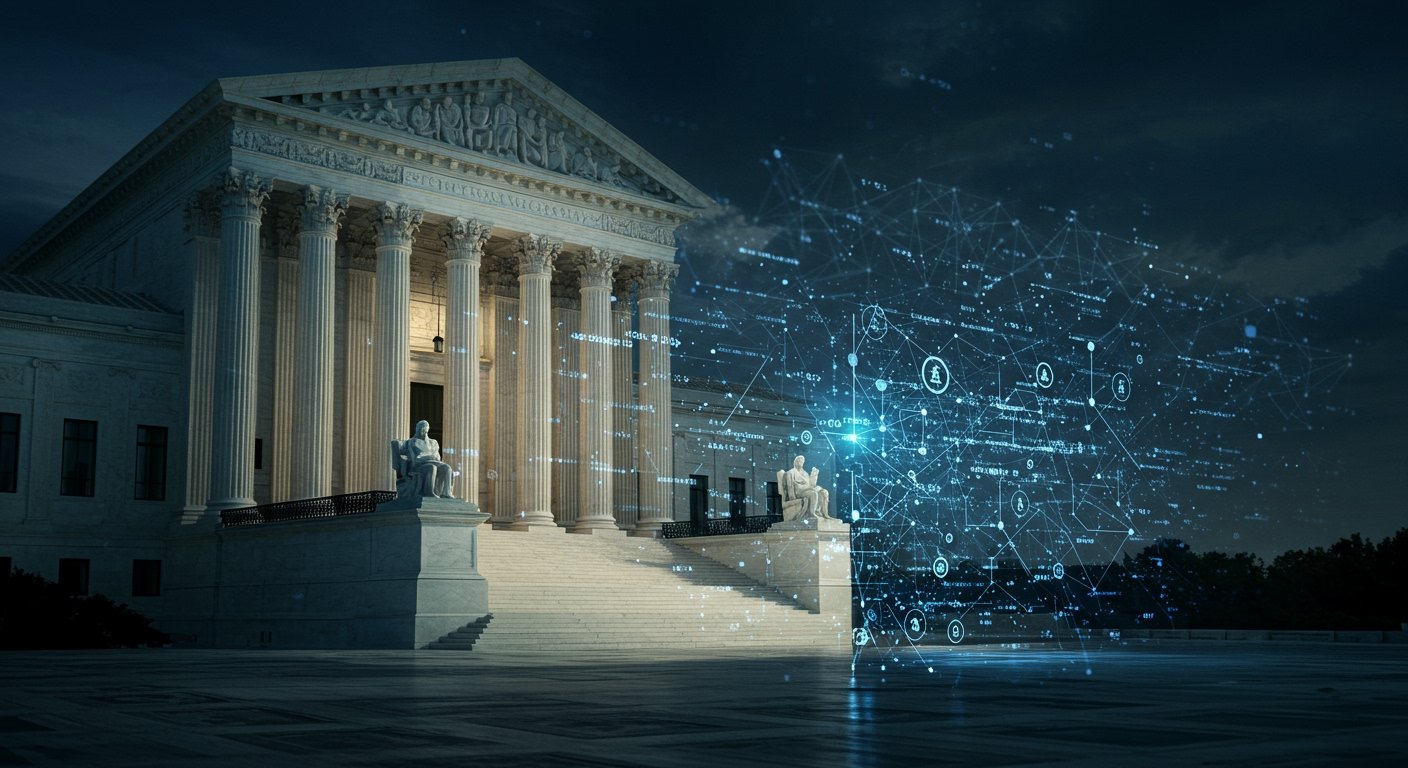WASHINGTON D.C. – The United States Supreme Court today, Friday, June 28, 2025, delivered a significant ruling, upholding a Texas state law that mandates age verification for users accessing pornographic websites. The decision marks a notable development in the ongoing national debate over online content regulation, particularly concerning the protection of minors and the scope of free speech rights in the digital age.
The Supreme Court’s Ruling
In its decision rendered this Friday, June 28, 2025, the nation’s highest court rejected arguments that the Texas requirement for websites to verify the age of visitors accessing sexually explicit material infringes upon constitutional free speech protections. This stance was notably advocated by critics of the law and a prominent adult entertainment industry trade association, the Free Speech Coalition. The court’s judgment effectively reverses a lower court ruling that had initially blocked the statute, clearing the path for its implementation in Texas. The ruling underscores the judiciary’s view on balancing First Amendment considerations with the state’s compelling interest in shielding children from potentially harmful online content.
Understanding the Texas Law
The Texas law at the heart of the case, enacted in 2023 by the state’s Republican-majority legislature, imposes stringent requirements on websites hosting pornographic content. Under the statute, these platforms must employ “commercially reasonable” age verification methods to ensure visitors are at least 18 years old. The legislation outlines significant penalties for non-compliance. Companies that fail to implement the required age verification checks face daily fines of up to $10,000. Furthermore, if a child is found to have accessed content on a site due to a failure in the verification process, the penalty can escalate to a maximum of $250,000. The law also includes specific privacy protections and prohibitions: websites are strictly prohibited from retaining any identifying information used during the age verification process, with a daily fine of $10,000 imposed for any violation of this data retention rule.
The Path to the High Court
The legal battle leading to today’s Supreme Court ruling began shortly after the Texas law’s passage. The Free Speech Coalition, representing a significant portion of the adult entertainment industry, filed a lawsuit challenging the statute’s constitutionality. Initially, a federal district court judge sided with the coalition, issuing an injunction that blocked the law’s enforcement. The district court judge opined that the age verification requirement constituted an undue burden that effectively restricted adult access to constitutionally protected content, thereby violating free speech principles. However, that decision was subsequently appealed to a conservative-dominated appeals court. The appeals court panel reversed the district court’s ruling, upholding the Texas law and finding the age verification requirement permissible. It was following this appellate court decision that the trade group elevated its challenge, filing an appeal with the United States Supreme Court, setting the stage for the landmark ruling issued today.
Broader Implications
The Supreme Court’s decision is expected to significantly boost similar legislative efforts aimed at protecting children from online sexual content across the United States. Texas is one of approximately 20 US states that have enacted or are considering laws requiring age verification for access to certain types of online content, particularly pornography. This ruling from the nation’s highest court could serve as a powerful precedent, potentially influencing internet speech regulation not only in states with existing laws but also in others contemplating similar measures. While proponents argue such laws are essential tools for safeguarding minors in the digital age, critics continue to raise concerns about potential privacy implications for users, the technical feasibility and effectiveness of various verification methods, and the potential chilling effect on accessing lawful content for adults. The ruling highlights the complex legal and societal challenges governments face as they attempt to regulate online spaces while respecting fundamental rights.
The Free Speech Coalition and other civil liberties advocates have voiced disappointment with the outcome, reiterating their position that age verification requirements can be overly broad, burdensome, and may inadvertently lead to the creation of government databases tracking individuals’ online activities, even if data retention is prohibited. However, supporters of the law, including child safety organizations and state lawmakers, lauded the Supreme Court’s decision as a critical step forward in preventing underage access to harmful material online, asserting that the state has a compelling duty to protect its youngest residents.
The decision signals a potential shift in how courts view state authority to regulate online content based on age, particularly when the stated goal is the protection of minors. As other states consider or implement their own versions of age verification laws, the legal framework solidified by the Supreme Court’s ruling in the Texas case will likely shape future challenges and the regulatory landscape of the internet nationwide.






